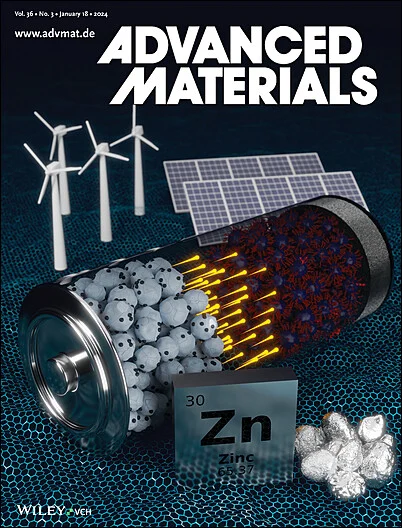The Role of Artificial Intelligence in Advancing Biosensor Technology: Past, Present, and Future Perspectives.
IF 26.8
1区 材料科学
Q1 CHEMISTRY, MULTIDISCIPLINARY
引用次数: 0
Abstract
Integrating artificial intelligence (AI) into biosensor technology enables data processing, quantitative analysis, real-time decision-making, and adaptive sensing capabilities through advanced pattern recognition and predictive modeling. In addition, AI has the potential to drive innovation in the design of advanced materials for biosensing applications by reducing the reliance on trial-and-error methods. This review explores the transformative impact of AI on biosensor technology in the context of historical development, current status, and future prospects. It begins with an overview of the evolution of AI, biosensor technology, and their integration. Comparative analysis of AI-driven innovations in optical, fluorometric, and electrochemical biosensors is presented, highlighting how AI can improve sensor performance. The role of advanced materials on the development of AI-assisted biosensors is also discussed as the choice of material has a profound effect on biosensor capabilities. Applications of AI-assisted biosensors are comprehensively explored across healthcare, environmental monitoring, food safety, and agriculture. This study concludes by addressing challenges, opportunities, ethical concerns, and future research directions, providing a comprehensive and up-to-date resource for researchers.人工智能在推进生物传感器技术中的作用:过去,现在和未来的观点。
将人工智能(AI)集成到生物传感器技术中,通过先进的模式识别和预测建模,可以实现数据处理、定量分析、实时决策和自适应传感能力。此外,人工智能有潜力通过减少对试错方法的依赖,推动生物传感应用先进材料设计的创新。本文从历史发展、现状和未来展望等方面探讨了人工智能对生物传感器技术的变革性影响。它首先概述了人工智能,生物传感器技术的发展及其集成。介绍了人工智能驱动的光学、荧光和电化学生物传感器创新的比较分析,重点介绍了人工智能如何提高传感器性能。先进材料在人工智能辅助生物传感器发展中的作用也被讨论,因为材料的选择对生物传感器的能力有深远的影响。全面探索人工智能辅助生物传感器在医疗保健、环境监测、食品安全、农业等领域的应用。本研究总结了挑战、机遇、伦理问题和未来的研究方向,为研究人员提供了全面和最新的资源。
本文章由计算机程序翻译,如有差异,请以英文原文为准。
求助全文
约1分钟内获得全文
求助全文
来源期刊

Advanced Materials
工程技术-材料科学:综合
CiteScore
43.00
自引率
4.10%
发文量
2182
审稿时长
2 months
期刊介绍:
Advanced Materials, one of the world's most prestigious journals and the foundation of the Advanced portfolio, is the home of choice for best-in-class materials science for more than 30 years. Following this fast-growing and interdisciplinary field, we are considering and publishing the most important discoveries on any and all materials from materials scientists, chemists, physicists, engineers as well as health and life scientists and bringing you the latest results and trends in modern materials-related research every week.
 求助内容:
求助内容: 应助结果提醒方式:
应助结果提醒方式:


